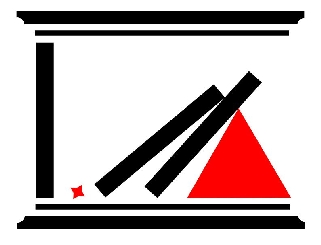


Prior to university, Matt Malone had a rural upbringing which resulted in a range of practical skills and self-reliance that have served him well through his career. Matt also had the space and freedom to experiment with machinery, fire, chemistry, home-made rockets, low and high voltage electricity, welding, casting -- in general a variety of hazardous, unsupervised experiments often involving tremendous forces -- as well as electronics and computer programming.
Matt Malone graduated with a B.A.Sc. in 1986 from Engineering Science at the University of Toronto and pursued masters and doctoral postgraduate studies at the University of Toronto Institute for Aerospace Studies. His masters research involved experiments as a contractor at Canadian Defence Research Establishment Suffield in the Blast Tube on the 30 square mile Experimental Proving Ground. He followed up these experiments with 3D dynamic finite element analysis of the effects of explosives and fuel-air detonations and deflagrations on structures using the University of Toronto's Cray supercomputer.
Matt Malone was offered a full-time staff appointment at the University of Toronto Institute for Aerospace Studies. When not teaching in the Division of Engineering Science, Matt was involved in research involving outside agencies. For instance, he worked on flight hardware at NASA's Johnson Space Center with 5 out of the 6 original Canadian astronauts and later designed, constructed and operated the analytical test rig used to analyze the post-flight samples from the NASA Long Duration Exposure Facility after their 5.7 years in space. Matt Malone returned for doctoral studies in space robotics as a Connaught Scholar and was again offered a teaching position at the University of Toronto, this time on the academic staff as an assistant professor supervising and teaching Engineering Design, the aerospace laboratories and Space Systems Design. Matt served on a number of committees including 14 years on and finally chairing the Safety Committee, as well as the Dean's Task Forces for Engineering Design and Safety in the Curriculum. In 2000, Matt Malone was awarded the Spirit of EngSci Award for his contributions.
Matt went on to work for a year with a start-up R&D company developing electronics, monitoring and control systems for the system under development. Weeks after September 11, 2001 Matt was offered a position as a technical consultant at LWG Consulting and spent 5 months on-site at 9/11. Matt applied for and received his P.Eng in October 2002, and his CFEI and CFII the following March. In 2006, seeking a more dedicated forensic practice, Matt joined R.J.Shirer & Associates and it was there he first applied his dynamics and analytical physics to vehicle accident reconstruction. It was also at R.J.Shirer & Associates that Matt Malone learned and contributed to the precision for the reporting of technical material in legal cases for which R.J.Shirer & Associates is well known.
In October 2014, Matt Malone earned his designation as a consulting engineer in the Province of Ontario. In February 2015, Matt Malone founded Root Cause Forensic Science and Engineering.